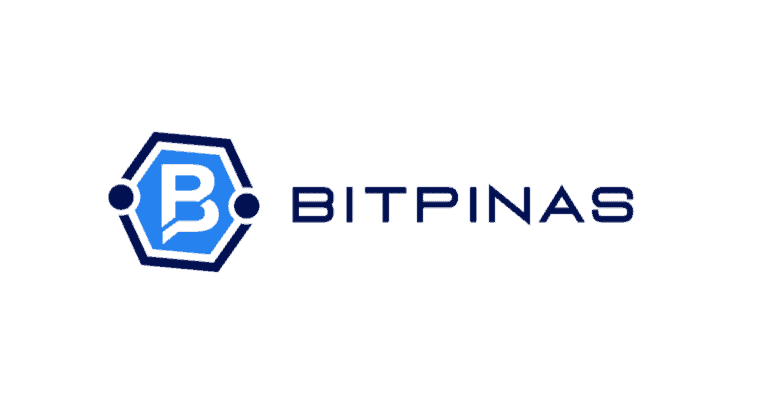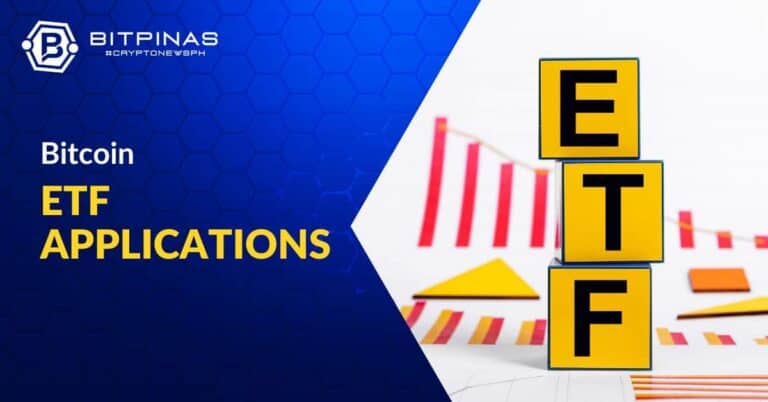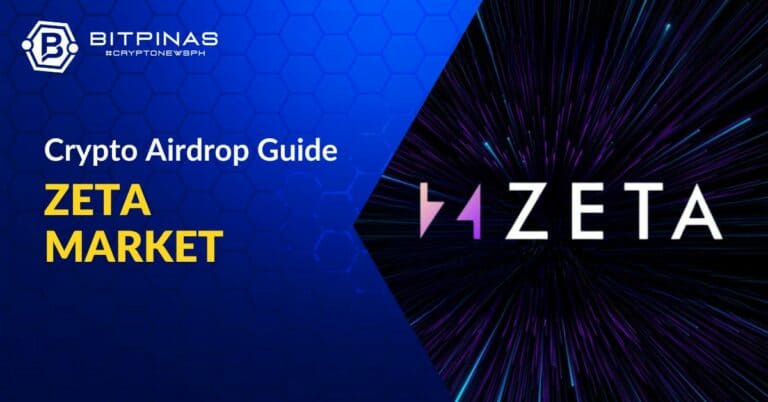Global Regulatory Outlook for Cryptocurrencies 2024
Learn about the global landscape of cryptocurrency regulations, from evolving frameworks in the United States, Europe, China, Japan, India, South Korea and Singapore as well as and the Financial Action Task Force’s global standards.

- Cryptocurrencies and digital assets have experienced significant growth over the past 15 years, but global regulation remains in progress.
- Regulatory approaches vary worldwide, with each country adopting distinct measures to address the challenges posed by cryptocurrencies.
- This article will provide an overview of the regulatory landscape and recent actions in each mentioned region.
Fifteen years passed since the first block of the leading cryptocurrency, Bitcoin, was mined and through the years digital assets have evolved and expanded exponentially. Despite this, definitive regulation of the asset class remains in the works.
Consequently, the regulatory outlook for cryptocurrencies varies globally, with different countries adopting diverse approaches.
Table of Contents
Global Crypto Regulation Outlook
United States
The regulatory landscape for cryptocurrency in the United States is currently evolving, with multiple regulatory bodies having varying perspectives, and the outlook for cryptocurrency regulation is in a state of flux.
In July 2023, a pivotal development occurred as a bipartisan bill for cryptocurrency regulation advanced in a key congressional committee in Washington. The bill, approved by the House Financial Services Committee, aims to establish a regulatory framework for cryptocurrencies by defining their classification as either securities or commodities.
Moreover, the legislation also seeks to enhance the Commodity Futures Trading Commission’s (CFTC) oversight of the crypto industry while clarifying the jurisdiction of the Securities and Exchange Commission (SEC).
In the aftermath of the recent bull run, US regulators have been actively pursuing crypto entities and individuals that it deemed to have failed to comply with existing regulations such as Paypal, Ripple, Richard Heart, Coinbase, Terraform Labs, Paxos, Kraken, and others.
Prior to this, the U.S. Treasury Department released measures to increase scrutiny on cryptocurrency markets and transactions in 2021, requiring any transfer exceeding $10,000 to be reported to the Internal Revenue Service (IRS). The move aims to address the detection challenges posed by cryptocurrency’s role in facilitating illegal activities, including tax evasion.
Recent Action on Crypto:
The United States Securities and Exchange Commission (SEC) has recently approved several Bitcoin Spot exchange-traded funds (ETFs) applications, including those from ARK 21Shares, Invesco Galaxy, VanEck, WisdomTree, Fidelity, Valkyrie, BlackRock, Grayscale, Bitwise, Hashdex, and Franklin Templeton. These ETFs are the first spot Bitcoin ETFs in the U.S.
The recent approval of Bitcoin ETFs signals a notable change in the SEC’s approach to cryptocurrency-related financial products, contrasting years of speculation and prior rejections. However, US SEC Chairman Gary Gensler clarified that the approval does not constitute an endorsement of Bitcoin by the Commission. It can be remembered that in early 2023, Gensler stated that “everything other than Bitcoin” is a security.
In November, the US SEC brought charges against cryptocurrency exchange Binance, its United States counterpart Binance.US, and its CEO, Changpeng “CZ” Zhao, for multiple violations of U.S. securities laws. A month later, Zhao and Binance acknowledged liability and agreed to pay a $4.3 billion penalty to the U.S. SEC for violating the Bank Secrecy Act.
European Union
The European Union (EU) has been working on developing a unified regulatory framework for cryptocurrencies.
First introduced in September 2020, the Markets in Crypto-Assets (MiCA) proposal aims to regulate digital assets and provide legal clarity. The proposal covers unbacked crypto-assets, stablecoins, trading venues, and wallets. It seeks to protect investors, ensure financial stability, and encourage innovation in the crypto-asset sector. The framework imposes stringent requirements on service providers to safeguard consumers’ wallets and holds them liable for any loss of investors’ assets. It addresses market abuse, including market manipulation and insider dealing.
Moreover, the European Securities and Markets Authority (ESMA) also aims to develop regulatory technical standards related to environmental and climate impacts.
The European Commission is mandated to report on the environmental impact of crypto-assets within two years, with the proposal expected to become law in 2024.
According to these entities, the objective is to enhance investor protection, prevent the misuse of crypto-assets, and maintain the EU’s innovation-friendly environment.
Recent Action on Crypto:
Last Year, the EU Parliament approved the MiCA regulation to oversee the issuance and provision of crypto assets and stablecoin services. Additionally, it has incorporated the crypto industry into the existing Transfer of Funds Regulation (TRF), mandating crypto operators to verify customer identities to combat money laundering.
In an article by Richard Teng, the current CEO of Binance, the implementation of the MiCA regulation in the European Union is a significant development for the global crypto industry as it brings regulatory clarity to one of the world’s largest markets, positioning the EU as an attractive hub for Web3 businesses to innovate.
China
In early 2017, despite being one of the centers of cryptocurrency trading, the National Internet Finance Association (NIFA) of China, a self-regulatory association with a focus on digital finance, issued a warning regarding initial coin offerings, or ICOs, which was subsequently followed by a ban.
Then, NIFA went on to warn that digital assets were being utilized as a payment method for illicit fundraising and money laundering activities. As a result of these warnings, exchanges and other services with a focus on ICOs have since taken steps to cease operations or have closed down entirely.
In 2021, the People’s Bank of China (PBOC), in conjunction with nine other authorities, including the Supreme People’s Court and the Ministry of Public Security, issued a regulatory document to regulate the speculative risks of cryptocurrency trading.
The regulatory document emphasizes that cryptocurrencies, including Bitcoin, lack equal legal status with fiat currencies and are not recognized as legal tender. The document declares all cryptocurrency transactions illegal, encompassing conversion, buying and selling, matching services, ICOs, and derivative transactions.
Moreover, financial institutions are barred from offering services related to cryptocurrency transactions. The circular also labels overseas cryptocurrency exchanges catering to Chinese residents via the internet as illegal, holding both employees and associated entities liable. China’s central bank warns of legal risks of cryptocurrency investment,
outlines measures to crack down on criminal offenses related to cryptocurrencies.
In 2018, China banned cryptocurrency trading and ICO-related websites. The ban includes foreign ICOs and uses China’s Great Firewall to block such websites. The move is intended to prevent financial risks and illegal activities associated with cryptocurrencies.
Recent Action on Crypto:
According to a report by the South China Morning Post citing the Shanghai Municipal Tax Service, an explanation of the taxation of digital currency transactions in China has fueled speculation among local crypto enthusiasts about a potential relaxation of the country’s strict crypto ban.
The report stated that the article, titled “Common Misunderstandings Regarding Personal Income Tax on Business Income and Categorised Income,” widely circulated on WeChat, led some to believe it signaled authorities recognizing the legitimacy of cryptocurrencies. However, the tax service later deleted the explainer. Experts note the article doesn’t imply a policy change, as it’s not an official document, and the referenced STA statement pertains to virtual tokens in video games. Despite no official shift, there’s an expectation of increased regulatory oversight on virtual asset-related income taxation in China.
Japan
Japan has been a significant player in the adoption of cryptocurrencies, owing to its early recognition of the potential of digital decentralized ecosystems. Despite setbacks such as the Mt. Gox hack in 2014, the Japanese government has taken measures to protect consumers rather than block cryptocurrencies outright. In 2016, Japan officially recognized cryptocurrencies as a form of money.
However, the Japanese government still does not recognize cryptocurrencies as legal tender, as a central bank does not issue these digital assets. Nonetheless, the country still acknowledges its purchasing power.
To engage in cryptocurrency transactions, entities must adhere to stringent Know-Your-Customer (KYC) checks and monitor suspicious activities. Verification and transaction records must be maintained for a minimum of seven years.
Japanese cryptocurrency regulations mandate the reporting of questionable transactions to authorities, with any transaction exceeding 30 million JPY, in cryptocurrency or fiat, mandatorily reported to the Ministry of Finance under the Foreign Exchange and Foreign Trade Act.
Recent Action on Crypto:
In late 2023, the Japanese cabinet endorsed a proposal to eliminate taxation on unrealized gains from cryptocurrency, particularly benefiting Web3 businesses. The proposal, awaiting deliberation in Japan’s parliament, aims to remove corporate taxation on the difference between market and book values of crypto assets issued by external companies. If enacted, it would address the inconsistency in taxing assets issued by third parties compared to holders, who currently face no tax on mark-to-market values.
Japan Blockchain Week, which was held in June of last year, included three events: Web3 Summit Tokyo, WEB3 BIZDEV SUMMIT -BLUE-, and IVS Crypto 2023 KYOTO.
In 2022, Japan’s Financial Services Agency (FSA) was considering lifting restrictions on foreign-issued stablecoins on Japanese exchanges. Additionally, the country’s Prime Minister announced plans to invest in the metaverse and NFTs, indicating a growing interest and support for developments in the cryptocurrency and blockchain space.
India
While India has been a pioneer in adopting cryptocurrencies, the status of crypto within the country has consistently remained precarious.
In 2013, the country’s central bank, the Reserve Bank of India (RBI), issued its first circular, cautioning against potential security risks associated with cryptocurrencies. Subsequently, it was followed by more warnings in between 2016 and 2018 after a demonetization drive unintentionally fueled increased investments in cryptocurrencies. By the end of 2017, the RBI and the finance ministry issued a warning explicitly stating that virtual currencies are not recognized as legal tender.
In 2018, a banking ban on crypto transactions by the Central Board of Digital Tax (CBDT) dealt a significant blow to exchanges. Following this, a #IndiaWantsCrypto campaign was launched in November to promote positive legislative regulation within the cryptocurrency industry.
In March 2020, the Supreme Court of India ruled in favor of overturning the ban on cryptocurrency banking, leading to a resurgence in cryptocurrency exchanges. Subsequently, in 2021, the Government of India announced its intentions to launch a sovereign digital currency and concurrently proposed a comprehensive prohibition on private cryptocurrencies. However, discussions held in November 2021 indicated a shift in approach, with the suggestion of regulatory measures as an alternative to an outright ban.
Recent Action on Crypto:
Last year, India’s Financial Intelligence Unit (FIU) issued show-cause notices for compliance to nine offshore cryptocurrency exchanges under the Prevention of Money Laundering Act (PMLA). This move comes after the country mandated KYC procedures and registration with the FIU for crypto companies in March, requiring both domestic and offshore Virtual Asset Service Providers (VASPs) to register as reporting entities and adhere to PMLA guidelines.
These exchanges include major platforms such as Binance, KuCoin, Huobi, Kraken, Gate.io, Bittrex, Bitstamp, MEXC Global, and Bitfinex.
In 2022, the Fintech Department of the RBI unveiled a Concept Note on Central Bank Digital Currency (CBDC), revealing plans for the Central Bank of India to initiate a limited pilot of the digital Rupee (e₹) for specific use cases. The e₹, described as a digital version of currency notes, is expected to offer an additional option to traditional forms of money, providing a faster, cheaper, and more accessible medium of exchange.
South Korea
Similar to other nations, South Koreans are also embracing blockchain and cryptocurrencies; accordingly, the country adopted a proactive stance toward regulating digital assets. Numerous laws and regulations have been implemented to guarantee the secure and sound functioning of the cryptocurrency market in South Korea.
In 2018, the country’s regulators implemented a ban on anonymous trading of cryptocurrencies to stop virtual currencies from being used for crimes such as money laundering.
In 2021, the South Korean government implemented an amendment to the Act on the Reporting and Use of Specific Financial Transaction Information, mandating that all virtual asset service providers (VASPs), including cryptocurrency exchanges, custodian wallet providers, and Initial Coin Offering (ICO) projects, must register with the Korea Financial Intelligence Unit (KFIU) to operate in South Korea.
Additionally, its regulators expressed wanting to implement a 20% tax on cryptocurrency transactions for the tax year 2022, applying to capital gains exceeding 50 million won for investors in stocks and bonds. Transfers of crypto assets without sales will be subject to statutory gift and inheritance tax rates of up to 50%. However, in July, the planned taxes on crypto earnings have been delayed until 2025.
Recent Action on Crypto:
Earlier this year, South Korea’s he Financial Services Commission (FSC) proposed a ban on using credit cards for cryptocurrency transactions due to concerns about illegal overseas fund outflows and money laundering risks.
Following the US SEC approval of Bitcoin spot exchange-traded funds (ETF), FSC reaffirmed its rule prohibiting financial institutions from launching crypto ETFs.
Singapore
Over the years, the Monetary Authority of Singapore (MAS) has consistently emphasized the considerable risks associated with cryptocurrency trading, underscoring its unsuitability for the general public.
In 2020, Singapore enacted its Payment Services Act, a comprehensive framework designed to regulate payment services and the provision of cryptocurrency services to the general public.
In January 2022, the country imposed a ban on crypto service providers, prohibiting them from promoting their services in public spaces or through third-party channels like social media influencers. Marketing is restricted to the providers’ official platforms, such as corporate websites, mobile applications, or designated social media accounts.
In addition, following a public consultation in October 2022, MAS announced an investor protection measures for Digital Payment Token (DPT) service providers. Effective by the end of the 2023, these measures require providers to safeguard customer assets through a statutory trust and restrict lending and staking of DPT tokens for retail customers.
On the other hand, during the Point Zero Forum in Switzerland last June 2022, Singapore’s Deputy Prime Minister Heng Swee Keat, highlighted the transformative potential of web3, blockchain, NFTs, and decentralized autonomous organizations (DAOs) in the fintech community.
Recent Action on Crypto:
In November, MAS issued the final installment of its responses to feedback on proposed regulations for crypto service providers. The central bank maintains requirements for crypto entities to discourage retail customers from cryptocurrency speculation by prohibiting financing, margin transactions, and trade incentives. MAS also emphasizes the avoidance of locally issued credit card payments and the necessity of assessing a customer’s risk awareness before granting access to services.
Last August, the country’s financial regulator released the finalized of rules for stablecoins, a type of digital currency. According to the regulations, reserves backing stablecoins must be held in low-risk and highly-liquid assets, and they must consistently equal or exceed the value of the stablecoin in circulation.
FATF
The Financial Action Task Force (FATF) actively contributes to shaping guidelines and recommendations for cryptocurrencies and virtual assets to mitigate the risks of money laundering and terrorist financing. While regulations on cryptocurrencies differ among jurisdictions, many countries look to or take into account FATF recommendations when establishing their regulatory frameworks for virtual assets.
The FATF is as an intergovernmental organization that establishes worldwide standards to combat money laundering, terrorist financing, and safeguard the international financial system. It comprises 39 official member countries and member countries of 9 FATF-Style Regional Bodies.
The Philippines, however, is not a direct member of FATF but is affiliated with the Asia/Pacific Group on Money Laundering, which is one of the FATF-Style Regional Bodies.
Cryptocurrencies are being regulated through its Travel Rule which mandates that countries ensure Virtual Asset Service Providers (VASPs) obtain and maintain required originator and beneficiary information for virtual asset transfers.
Recently, Bangko Sentral ng Pilipinas (BSP) issued a memorandum providing clarity on Travel Rule requirements for local VASPs. The memorandum addresses aspects related to peer-to-peer transactions and outlines regulatory expectations for transactions involving unhosted wallets.
Philippines Regulatory Outlook
Although the country does not yet possess a specific law governing cryptocurrencies, it still has regulations that affect the country’s crypto-related market.
The Bangko Sentral ng Pilipinas (BSP) is responsible for regulating the nation’s monetary policy. In 2017, the BSP issued Circular No. 944, which recognized virtual currencies as a valid payment method. The circular required virtual currency exchanges to register with the BSP and comply with anti-money laundering (AML) and counter-terrorism financing (CTF) regulations.
Expanding upon the initial regulations, the BSP implemented the Guidelines for Virtual Asset Service Providers (VASPs) in 2021. These guidelines laid the foundation for a thorough regulatory framework governing virtual currency exchanges in the Philippines. Within this framework, VASPs must secure a license from the BSP prior to initiating their operations in the country.
In addition, the guidelines stress the need for effective Know Your Customer (KYC) and AML/CTF measures. VASPs must collect customer identification information and actively monitor transactions to identify and report suspicious activity. Currently, the BSP has a moratorium on issuing new VASP licenses until September 2025.
Read: List of Licensed Virtual Currency Exchanges in the Philippines
On the other hand, the SEC, being responsible for overseeing securities, investments, and financial instruments, released an advisory concerning initial coin offerings (ICOs) and cryptocurrency investments, cautioning investors about potential risks in 2018. Additionally, the Commission mandated that companies engaging in ICOs must register with it and comply with securities regulations.
Read: What are the Seven Notable Crypto-Related Regulations in PH & Their Impact on the Community?
Recent Action on Crypto:
Last November, the Commission warned against Binance and unauthorized exchanges, seeking help from National Telecommunication Commission (NTC) and the Department of Information and Communications Technology (DICT) to block access in the Philippines, which would prevent users from reaching the website and applications locally.
Last month, the SEC disclosed its plans to introduce the Digital Asset Security Service Provider Rules by the end of this year or Q1 2024. These regulations aim to create a comprehensive legal framework for digital assets, particularly focusing on those considered securities. Unlike the BSP’s VASP rules governing crypto-to-fiat transactions, the SEC’s rules focus on broader cryptocurrency usage and ecosystem regulation to prevent issues like the FTX incident.
This article is published on BitPinas: Global Regulatory Outlook for Cryptocurrencies 2024
Disclaimer:
- Before investing in any cryptocurrency, it is essential that you carry out your own due diligence and seek appropriate professional advice about your specific position before making any financial decisions.
- BitPinas provides content for informational purposes only and does not constitute investment advice. Your actions are solely your own responsibility. This website is not responsible for any losses you may incur, nor will it claim attribution for your gains.








